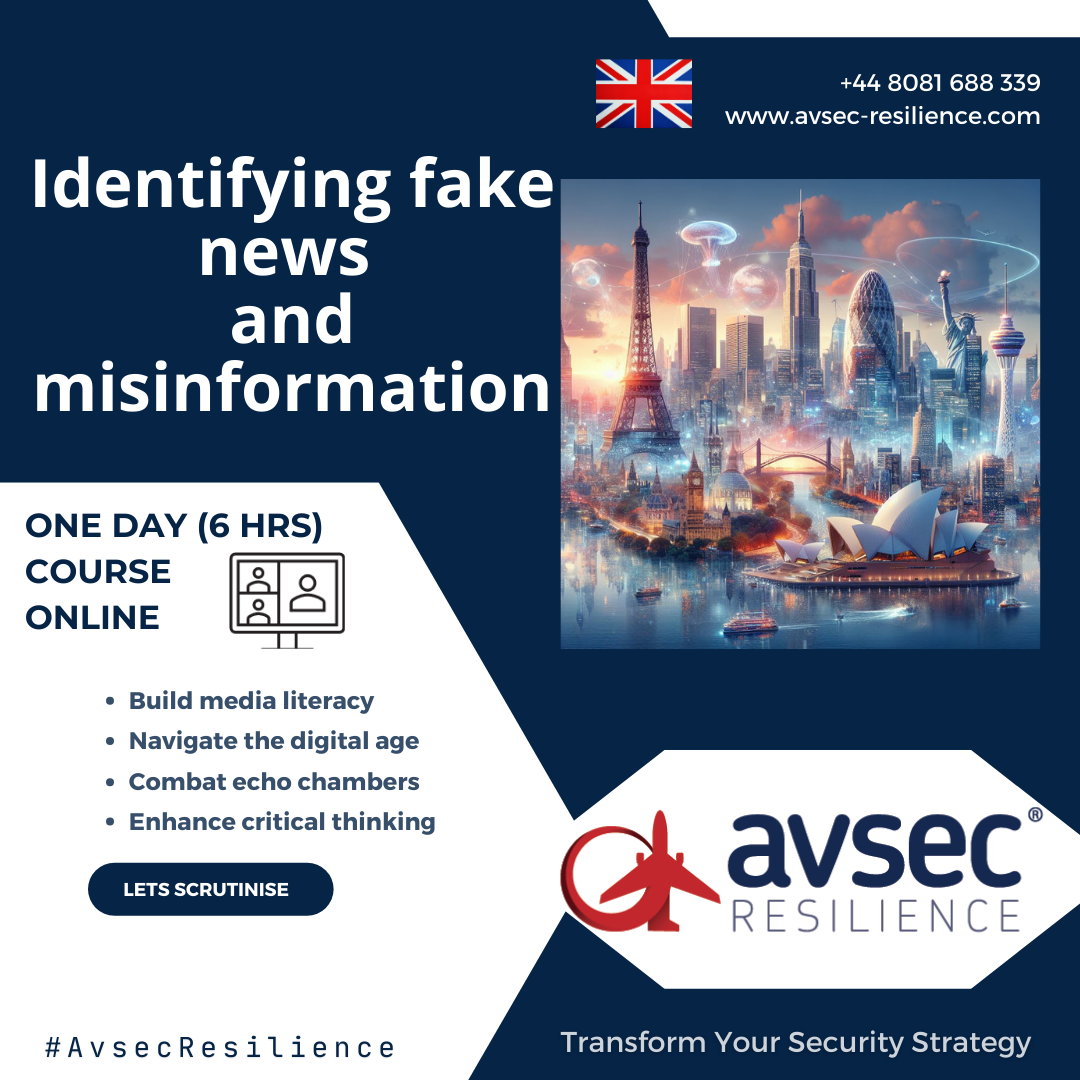Design & Developed by Themeshopy
Return To TopThe 7 dimensions of security mentoring
The 7 dimensions of security mentoring

Duration: 1 days / 6 hours
Delivery method: Online/ In-company training
Target Audience: This course is designed for Security Managers, Security Supervisors, and Security Team Leaders who want to improve their leadership skills and keep their teams motivated, engaged, and committed.
Cost: Available upon application
Language: English
Course code: DSM-1
Introduction
In just one day, you’ll explore a complete spectrum of mentoring styles, from traditional one-on-one relationships to modern approaches like reverse, flash, and virtual mentoring. Through interactive sessions, real-world examples, and hands-on activities, you’ll gain the confidence and clarity to implement or enhance mentoring in any personal or professional context.
-
✅ Discover the full range: Master 7+ mentoring models—including group, peer, and skills-based mentoring—and discover practical insights on when and how to use each.
-
🔄 Bridge generations & cultures: Embrace modern mentoring formats like reverse mentoring to connect with diverse teams and emerging talent.
-
⚡ Get practical, fast: No fluff—just tools, frameworks, templates, and roleplay scenarios you can use immediately.
-
🌐 Future-proof your strategy: Explore how virtual mentoring can elevate connection and development in hybrid and remote environments.
-
🤝 Build a mentoring culture: Launch a new program or level up an existing one with the tools and strategies this course provides to make mentoring meaningful, measurable, and scalable
What you will learn
By the end of this one-day course, you’ll walk away with a clear understanding of seven distinct types of mentoring—from traditional one-on-one relationships to dynamic models like reverse, peer, and virtual mentoring.
You’ll learn how to:
-
Identify the right mentoring type for different goals and contexts
-
Structure effective mentoring relationships across all formats
-
Apply practical tools, templates, and conversation frameworks
-
Design or enhance mentoring programs in your organization
-
Foster a culture of growth, inclusion, and knowledge-sharing
Whether you’re a mentor, mentee, or program designer, you will create powerful, purposeful mentoring experiences with the tools and knowledge this course provides.
Potential business benefits, the why
The difference between coaching and mentoring
Coaching is a goal-oriented, performance-driven process focused on enhancing an individual’s skills, behaviours, and capabilities in a specific area. It centres around short-term objectives and employs a structured approach to address immediate challenges and opportunities.
- Immediate Impact: Coaching delivers rapid results by addressing real-time challenges and offering actionable solutions.
- Skill Refinement: It hones specific skills, helping employees improve performance and achieve targeted goals.
- Accountability: Coaches establish clear expectations and hold employees accountable for their progress.
- Adaptability: Coaching can be tailored to individual needs, ensuring personalized development plans.
- Limited Scope: Coaching may overlook long-term development and fail to address broader career aspirations.
- Narrow Focus: Its short-term orientation might neglect holistic skill development.
- Time-Intensive: Frequent coaching sessions can strain resources and managerial time.
- Performance Optimization: Effective coaching can optimize team performance and drive higher productivity.
- Leadership Growth: Developing coaching skills among leaders can foster a culture of continuous improvement.
- Employee Engagement: Personalized coaching demonstrates a commitment to employee growth and enhances engagement.
- Misalignment: Ineffective coaching strategies might lead to confusion and misalignment within the team.
- Overdependence: Excessive coaching can discourage independent thinking and problem-solving.
- Burnout: The demand for coaching can overwhelm both coaches and employees if not managed well.
Mentoring is a relationship-driven process focused on holistic professional and personal development. It emphasizes long-term growth and is often centred around providing guidance, wisdom, and insights based on the mentor’s experience
- Holistic Development: Mentoring addresses a wide range of skills, knowledge, and perspectives.
- Career Advancement: It provides guidance on navigating the complex landscape of career progression.
- Wisdom Transfer: Mentors share invaluable insights, contributing to better decision-making and problem-solving.
- Loyalty and Commitment: Mentorship fosters a sense of loyalty and commitment between mentors and mentees.
- Time-Intensive: Effective mentoring demands substantial time commitments from both parties.
- Dependency: A mentor's absence or disengagement can disrupt the mentee's growth journey.
- Subjectivity: Mentorship effectiveness can vary based on the mentor's biases and limitations.
- Knowledge Transfer: Successful mentorship can lead to the preservation and dissemination of institutional knowledge.
- Succession Planning: Mentoring grooms future leaders, supporting seamless succession within the organization.
- Culture Enhancement: A mentorship culture can foster a sense of belonging and shared values.
- Inadequate Pairing: Poor mentor-mentee matching can result in ineffective or unproductive relationships.
- Resistance to Change: Some employees may resist external guidance, hindering the mentorship process.
- Exclusivity: Limited access to mentors can exclude certain employees from growth opportunities.
At a glance; Mentor/ Coach/ Facilitator
| Aspect | Mentor | Coach | Facilitator |
|---|---|---|---|
| Focus | Career and personal development | Performance improvement or goal attainment | Group learning, collaboration, process |
| Relationship | Long-term, informal or structured | Short- to medium-term, formal | Neutral, not ongoing with individuals |
| Approach | Share experience and guidance | Ask questions to unlock potential | Guide group process without giving answers |
| Expertise needed | Subject or industry experience | Coaching training and questioning skills | Group dynamics, communication skills |
| Typical style | Advising, sharing, supporting | Challenging, reflective, goal-oriented | Neutral, inclusive, process-driven |
| Goal | Develop the person over time | Achieve a specific personal/professional goal | Enable a group to reach shared outcomes |
The 7 types of mentoring covered in this course
Deep, personalized development over time
Strong mentor-mentee bond based on trust
Ideal for career growth, leadership development, and goal setting
Junior employees mentor senior leaders
Fosters innovation, digital fluency, and cultural awareness
Breaks down generational and hierarchical barriers
Develop key professional skills faster
Gain access to valuable networks
Develop key professional skills faster
Short, focused sessions—often one-off
Quick knowledge transfer on specific topics
Great for networking, onboarding, or event-based learning
Equal-level colleagues support and guide each other
Promotes collaboration, trust, and shared accountability
Ideal for onboarding, team-building, and learning communities
One mentor guiding multiple mentees at once
Encourages peer learning and diverse perspectives
Scalable and time-efficient for mentors
Focused on building specific technical or soft skills
Shorter-term, project- or task-oriented
Aligns closely with performance and business needs
“We don’t rise to the level of our expectations, we fall to the level of our training.” – Archilochus.
In-house courses
While Zoom is the default platform for online delivery, you can also choose Microsoft Teams or Webex for this course with some modifications.
Bespoken inhouse delivery: No matter how good a chief is, a person will modify the plate in front of them and may even leave some items on the side 🥦.
The above course can be modified to better fit, the appetite of your organisation













